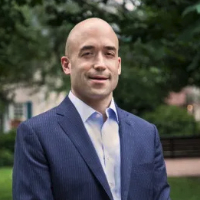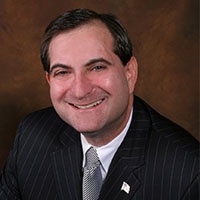LIFE INSURANCE
A contract in which an insurance company agrees to pay money to a designated beneficiary upon the death of the policy holder. In exchange, the policyholder pays...
(more...)A contract in which an insurance company agrees to pay money to a designated beneficiary upon the death of the policy holder. In exchange, the policyholder pays a regularly scheduled fee, known as the insurance premiums. The purpose of life insurance is to provide financial support to those who survive the policyholder, such as family members or business partners. When the policyholder dies, the insurance proceeds pass to the beneficiaries free of probate, though they are counted for federal estate tax purposes. group life insurance Life insurance available through an employer or association that covers participating employees and members under one master insurance policy. Most group life insurance policies are term insurance policies, that terminate when the member or employee reaches a certain age or leaves the organization and do not accumulate any cash surrender value. term life insurance No-frills life insurance, with neither cash surrender value nor loan value (an amount that can be used as collateral for a loan). Term life insurance provides a pre-set amount of coverage if the policyholder dies during the period of time specified in the policy. Policyholders usually have the option to renew at the end of the term for the period of years specified in the policy. Unlike whole life insurance, premiums generally increase as the insured person gets older and the risk of death increases.universal life insurance A type of whole life insurance that offers some additional features and advantages. Like whole life insurance, universal life insurance accumulates cash value through investment of the premium payments. The unique feature of universal life insurance is that it has variable premiums, benefits and payment schedules, all of which are tied to market interest rates and the performance of the investment portfolio. Also, universal life plicies normally provide you with more consumer information. For example, you are told how much of your policy payments goes for insurance company overhead expenses, reserves and policy proceed payments, and how much is retained and invested for your savings. This information isn't usually provided with whole life policies.variable life insurance A type of whole life insurance in which the amount of death benefits varies, depending on the performance of investments. The insurance company places some or all of the fixed premium payments into an investment account; some companies let the insured person decide how the money is invested. The policyholder bears the risk of investment losses, though there is a guaranteed minimum benefit payment. One benefit of variable insurance is that interest and dividend income from the investment account is not taxed until it is paid out to the policyholder.variable universal life insurance A type of whole life insurance that provides greater potential for financial gain--and brings greater risks. Like universal life insurance, variable universal life insurance offers flexible premiums, payment schedules and benefits. But variable universal life policies are riskier because the premiums are invested in stocks, rather than more predictable money market accounts and bonds. Also called universal variable life insurance.whole life insurance Life insurance that provides coverage for the entire life of the policyholder, who pays the same fixed premium throughout his or her life. The policy builds up cash reserves that may be paid out to the policyholder when he or she surrenders or partially surrenders the policy or uses the cash reserves to fund low-interest loans. The annual increase in the cash value of the policy is not taxed. If the policyholder surrenders the policy, a portion of the payment is not taxable. Also called straight life insurance or ordinary life insurance.
 x
x

 Brian Levine New Castle, PA
Brian Levine New Castle, PA Practice AreasExpertise
Practice AreasExpertise


